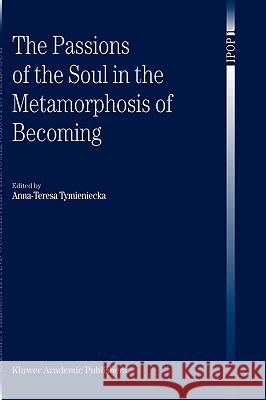The Passions of the Soul in the Metamorphosis of Becoming » książka
The Passions of the Soul in the Metamorphosis of Becoming
ISBN-13: 9781402014611 / Angielski / Twarda / 2003 / 251 str.
The Passions of the Soul in the Metamorphosis of Becoming
ISBN-13: 9781402014611 / Angielski / Twarda / 2003 / 251 str.
(netto: 367,16 VAT: 5%)
Najniższa cena z 30 dni: 382,84 zł
ok. 20 dni roboczych.
Darmowa dostawa!
Over the millennia, philosophy has sought the ultimate understanding of the full human horizon of existence as well as of human destiny and the ultimate sense of it All. The innumerable attempts to grasp the answers to these questions, each taking its own approach and having its own preconceptions, have engendered a range of different philosophical approaches, one so broad that seemingly unbridgeable rifts impede possible, cross-fertilizing communication. And yet the themes of all of them, e.g., the immeasurable cosmos, life, the individual being bearing life, the human person within his or her world, and his or her longings to transcend that world, the human mind, its pragmatic/cognitive tools, creative, speculative pursuits, remain constants. The logos they all share is one. It is not that no vicarious sharing of intuitive glimpses by the proponents of the varied doctrines and methods in question occurs. The history of philosophy is in fact marked by the juxtaposing of theories and approaches having different trajectories and by the mixing of insights, the crossing of borders, etc. However, what is greatly needed is in-depth comparison of the various doctrines and a reflection on the contrasting, opposing, clashing perspectives that seeks foundations for all of them in the human, creative condition, in that microcosm that extends its tentacles toward the two great infmities: the external infmity of the cosmos and the internal infinity of transcending destiny.











